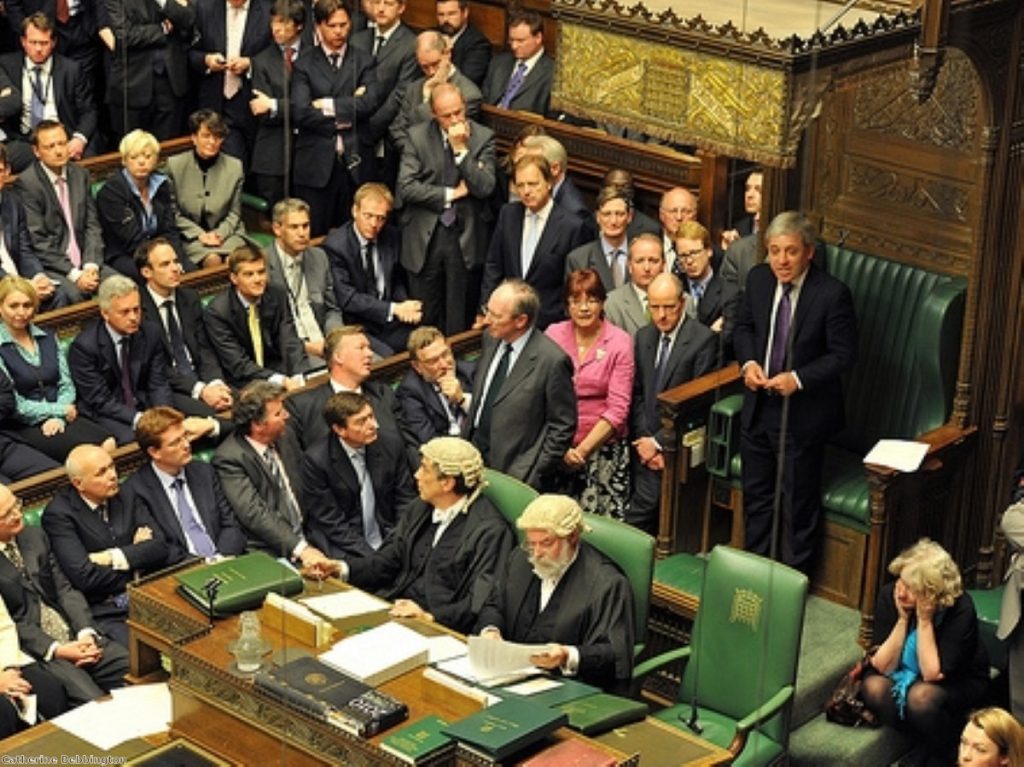Speaker takes on the PMQs ‘wall of noise’
Commons Speaker John Bercow has declared war on the "orchestrated barracking" which has made prime minister's questions even more rowdy in recent years.
Bercow, who estimates parliament has only recovered about "a third" of its reputation in the wake of the 2009 expenses scandal, has written to the three main party leaders requesting talks on the future of PMQs.
"I have anecdotal indications that there is some encouragement," he told the Independent newspaper.
"I have had one or two colleagues coming to me and telling me they've had text messages [from the whips] saying 'thanks for the wall of noise'."


Bercow said he would like to see party leaders telling their MPs: "'Cut out the orchestrated barracking. I don't want it. I want your support and I'm delighted if when I get up I get a big cheer… but the orchestrated barracking of my opponent is not good for the House and I don't want it to happen and I've asked the whips to monitor the conduct.'"
He added: "If that were done there would be a step change within weeks."
Bercow's appeal for cross-party talks are unlikely to meet with a positive response from party leaders, who may have responded more productively to private appeals.
But the Speaker's decision to go public and criticise PMQs will boost his image as a man determined to improve the behaviour of the Commons.
"I don't think we should be prissy about this, but I am not sure we're setting a good example to the next generation of voters," he said.
"There are people who think culturally the atmosphere is very male, very testosterone-fuelled and, in the worst cases, of yobbery and public school twittishness."
Bercow could decide to escalate the issue by ordering a Speaker's conference examining PMQs, which would take evidence in public and trigger a broader public debate.
Ed Miliband, whose MPs are deeply frustrated by prime minister's questions, has suggested even more extreme reforms could be possible.
His team has been considering shaking up PMQs dramatically by turning it into topic-based sessions, removing their topicality in the process.
Attempts to change prime minister's questions will have been bolstered by a report from the Hansard Society published earlier this month, which showed two-thirds of the public think there is too much party-political point-scoring instead of answering the question.
Forty-seven per cent thought PMQs was "too noisy and aggressive", while 33% said they agreed with the statement that 'it puts me off politics'.
"As parliament's 'shop window', PMQs portrays a damaging and misleading impression of what happens at Westminster because the public think that what happens is how parliament works all the time," the Hansard Society's director Ruth Fox said.
"Reform is overdue if PMQs is to move from being an inward-looking and self-referential event towards its proper role of scrutiny and accountability."

